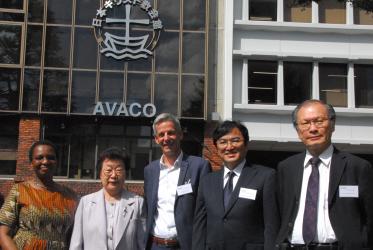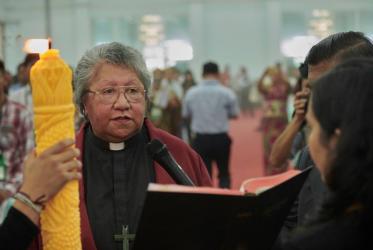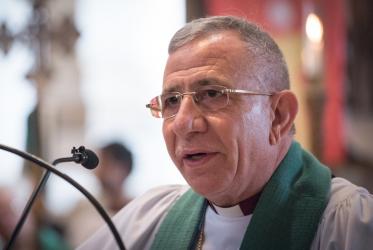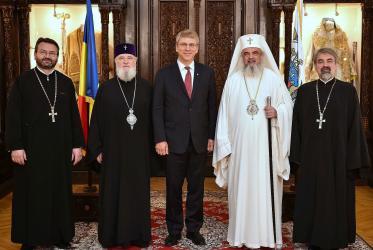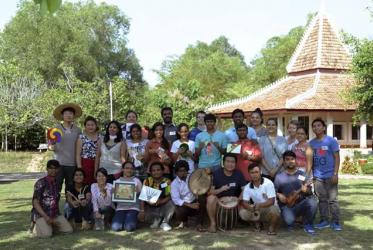Displaying 1 - 20 of 20
In Japan, theologians reflect on today’s global manifestations of racism
18 September 2019
WCC represented at G20 Interfaith forum in Tokyo
13 June 2019
Romani people seek “lives of decency, dignity, and justice”
27 September 2018
Paving the way for ecumenical studies, learning English in Bossey
24 September 2018
Bishop Younan awarded Niwano Peace Prize
22 February 2017
Religion: Way of war or path to peace?
30 June 2016
WCC Executive Committee works toward a future of peace and justice
19 November 2015
WCC urges responsibility for and support to the refugees in Europe
04 September 2015
“The world must be freed of nuclear weapons”
06 August 2015
Momentum builds for ban on nuclear weapons
16 December 2014
Weaving together personal faith and climate change
23 September 2014

